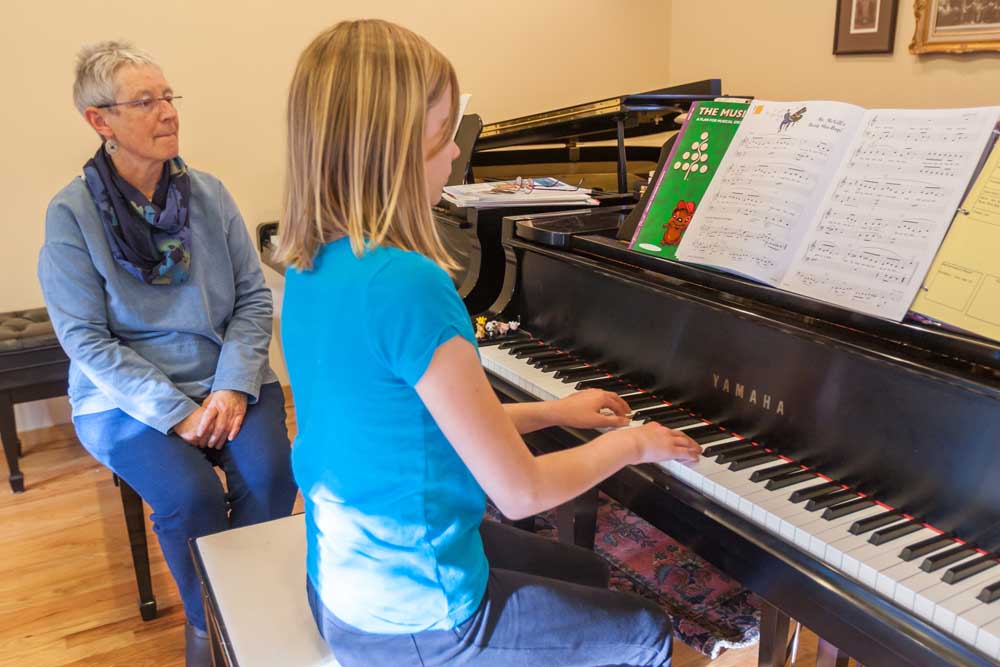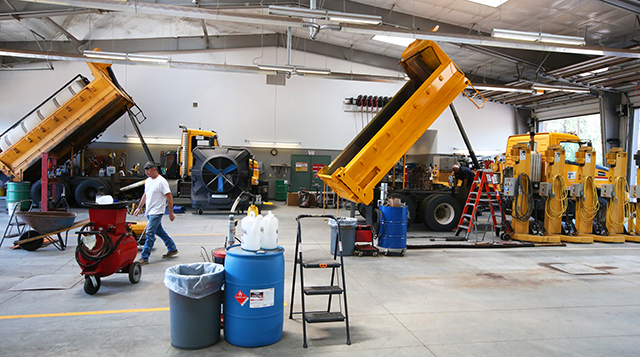Keys to Learning
Published 12:00 am Saturday, April 19, 2014

- Keys to Learning
My friend Alex is perpetually late, and so when picking her up last week to go to the movies, I was forced (per usual) to while away a few minutes in her living room while she finished getting ready.
After a quick amble through her coffee table literature, I walked over and sat myself down at the piano in the corner of her living room.
Trending
The tune came easily and the sound of “Animals on Parade,” a song I played for a recital when I was 6 years old, wafted into the room. It’s been more than 20 years since I even thought of that song — the sustained whole notes, the playful cadence — and while I gave up the piano in high school and don’t consider myself a pianist, the lessons remain, both those learned about and from the piano.
“Discipline is discipline,” said Kathy Gault, president of the Central Oregon District of the Oregon Music Teacher’s Association. “When a child dedicates themselves to learning piano, it translates to other areas of their life.”
One student currently on the road to dedication with Kathy is Stella Gault.
“I started taking group lessons with my friends when I was younger, which was really fun,” said Stella. “It was probably around the 3rd grade when we learned the basic notes and how to read music.”
And Stella, who just turned 13, is now getting ready for a solo recital in April.
Many studies show that those who play musical instruments use both sides of their brains more often than those who don’t. This regular use of both the left and the right sides of the frontal cortex, often called divergent thinking, has been linked not only to creative and interpretive problem solving, but also to more efficiently accessing any learned information, music related or otherwise.
Trending
“She has to be ready for her lesson every week,” said Lynn Gault, Stella’s mother. “Even if she just practices 30 minutes a day, that’s 30 minutes she’s committed to piano.”
Before Stella took lessons from Kathy, her older sister Emily took piano lessons, as well. And while Lynn’s goal wasn’t necessarily to make master pianists, it was to help her girls find their own passions.
“Emily stopped taking piano a few years ago when she fell in love with nordic skiing,” Lynn said. “She wanted more time to focus on sports, but for both [Stella and Emily], piano is giving them a basis for other things in their lives.”
“A lot of what kids learn from taking piano is motivation,” said Helen Jones, piano teacher and member of the Oregon Music Teacher’s Association. “You create a really tangible goal, and it gives kids incentive. It’s important to dangle that carrot.”
In many other areas of the arts, so much of what’s created is subjective. But in music, the correct note is hit … or not. The boundaries can give students clear objectives for which to strive.
“That’s one of the reasons we chose piano is that Joan didn’t have to worry about pitch and tuning, like with other instruments,” said Eunhwa Lee, whose daughter, Joan, has been taking piano since age 5.
Now 12, Joan is practicing to reach Level 10 in the Royal Conservatory’s Music Development Program, the organization’s highest student level.
Besides finding the right instrument, it was also important to find the right balance of personalities between her daughter and the piano teacher, Eunhwa said.
“When she was 5, it was harder to control Joan,” Helen said.
At the young age most children start taking piano lessons, it’s often part of the piano teacher’s role to manage their student’s energy.
“There’s a three-way triangle that’s so important between teacher, student and parent,” Helen continued. “All three of you have to work together on a student’s concentrated goal. You’re not just teaching kids how to study the piano, but they’re at that age when they’re learning how to study anything for the first time.”
“Nowadays, I’m better at controlling myself and managing my own practice, but when I was younger, I didn’t have that self control,” Joan said, reflecting on her earlier years. “Now I know what I have to do, but everything is harder when you’re just starting.”
Even with her advanced achievements in piano, Joan remembers not loving to play at first.
“My mom and I used to argue a lot and end up yelling at each other when she would make me practice,” she said. “It was really frustrating. . . but now that I’ve learned the basics, it’s more enjoyable to have an actual motive or goal I’m going toward.”
“She understands now that music is hard. Learning a new piece is hard,” Eunhwa added. “It’s a metaphor for life. After years of struggling, after you put the effort to make something happen, you get to create something beautiful. There’s joy in that.”
Joan says she’ll eventually stop taking lessons, as well, though even at her young age she’s beginning to master Schubert and has the ability to sight read.
“The way I see it, I probably won’t be taking music in college, but I’m sure I’ll always play the piano for fun,” she said.
And that’s the point, isn’t it? Even with all the tangibles, it’s supposed to be fun. We wouldn’t do it otherwise. The carrot being dangled isn’t necessarily music or higher cognitive thinking, but joy and enjoyment.
“I just wanted to teach my kids to appreciate music,” Lynn said. “I wanted them to be able to have that love and understanding. That was the point, whether or not they play piano later in life, they’ll always have that.”
With the progression and all the hours of clear and palpable lessons, it’s still the other — the immeasurable thing — that makes piano so beneficial. Music, like love and excitement and adventure — all things that really matter and give meaning to our lives — become exceedingly difficult to describe.
“I’m not sure why it’s so important to me, but it is really important,” said Joan. “It’s part of my everyday life. I really love it, and my life would be so different without it. I’d be missing out on the joy that comes with creating a piece of music.”








